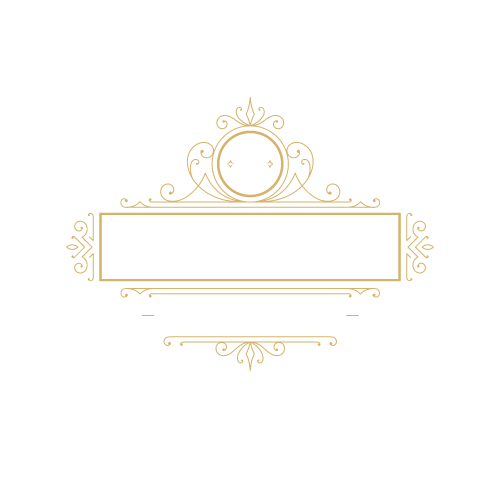The realm of luxury timepieces captivates with its blend of artistry, heritage, and exclusivity. Brands like Rolex epitomize prestige, quality, and status. Yet, alongside authentic luxury watches, a thriving market for replica watches often called prestige watches has emerged. These replicas, such as Rolex clone watches and prestige replica watches, mimic the appearance of high-end timepieces at a fraction of the cost. While appealing to budget-conscious buyers, the legal and ethical implications of purchasing, selling, or producing these watches are intricate and multifaceted. This blog delves into the complex legal and ethical discussions surrounding replica watches, exploring their impact on consumers, manufacturers, and the luxury watch industry.
Understanding Replica Watches
Replica watches are designed to closely resemble luxury timepieces, such as those from Rolex, Patek Philippe, or Audemars Piguet. Often marketed as prestige clone watches, they aim to replicate the aesthetic and sometimes the functionality of their authentic counterparts. However, they are not produced by the original brand and typically use lower-quality materials and movements. Some replicas, like replica watches, are so sophisticated that they can pass as genuine, while others are clearly counterfeit.
The primary appeal of replica watches is affordability. A genuine Rolex can cost tens of thousands of dollars, whereas a prestige replica watch might be priced at a few hundred. This price gap makes replicas attractive to those seeking the look of a luxury watch without the financial burden. However, the decision to engage with these watches is far from simple, as it raises significant legal and ethical questions.
The Legal Framework of Replica Watches
Counterfeiting and Intellectual Property Laws
The core legal issue surrounding replica watches is counterfeiting. Counterfeit watches bear the logo, branding, or design elements of a luxury brand without authorization, violating intellectual property (IP) laws, including trademarks, copyrights, and design patents. For instance, a Rolex super clone using the brand’s iconic logo or crown symbol without permission is considered counterfeit and subject to legal action.
In the United States, the Lanham Act governs trademark infringement and counterfeiting. Manufacturers or sellers of counterfeit watches can face lawsuits, fines, and criminal charges. In the European Union, the EU Trademark Regulation protects brand identities, with customs authorities seizing counterfeit goods at borders. In 2023, the European Union Intellectual Property Office (EUIPO) reported that customs officials confiscated millions of counterfeit items, including watches, valued at over €700 million.
The Gray Area: Non-Counterfeit Replicas
Not all replica watches are outright counterfeits. Some manufacturers produce “homage” watches or prestige clone watches that mimic the style of luxury watches but avoid using protected logos or brand names. These occupy a legal gray area. While they may not infringe on trademarks, they could violate design patents or copyrights if they copy specific design elements too closely. Court rulings vary, depending on the degree of similarity and intent to deceive consumers.
For example, a prestige replica watch might emulate the look of a Rolex Submariner but use a different brand name or no branding. While this may avoid trademark issues, it could still spark legal disputes if the design is too similar to the original. Companies like Prestige Watches, which focus on high-quality timepieces inspired by luxury designs, must carefully navigate this legal tightrope.
Consumer Risks
While legal scrutiny often targets manufacturers and sellers, consumers purchasing replica watches also face risks. In many jurisdictions, knowingly buying counterfeit goods is illegal, though enforcement against individuals is rare. However, importing Rolex clone watches can lead to customs seizures and fines, especially in countries with strict IP enforcement. Travelers bringing such watches into the United States or Europe may have their items confiscated at borders.
Additionally, purchasing prestige replica watches from unregulated sources exposes consumers to scams, fraud, or subpar products. Unlike authentic watches, which come with warranties and after-sales support, replica watches often lack such assurances, leaving buyers with little recourse if the product fails.
Ethical Dimensions of Replica Watches
Beyond legal concerns, the replica watch industry raises profound ethical questions that impact consumers, manufacturers, and the luxury watch market.
Impact on Brand Integrity and Craftsmanship
Luxury watch brands invest heavily in research, development, and craftsmanship to create timepieces that are both functional and artistic. Producing a single high-end watch can involve hundreds of hours of skilled labor and premium materials. Replica watches, even high-quality prestige replica watches, undermine this craftsmanship by offering cheaper alternatives that often lack the same quality and durability.
For consumers, the ethical dilemma is whether purchasing a prestige clone watch devalues the artistry and heritage of the original brand. By choosing such a watch, buyers may contribute to a culture that prioritizes appearance over substance, potentially harming the reputation of brands that have built their legacy over decades.
Exploitation in the Replica Industry
The production of replicas often occurs in unregulated or poorly regulated environments, raising concerns about labor practices. Some manufacturers of low-quality replicas have been linked to exploitative working conditions, including low wages and unsafe workplaces. Ethical consumers may question whether supporting the replica watch market indirectly fuels such practices.
In contrast, companies like Prestige Watches, which prioritize high-quality homage watches, may adhere to better manufacturing standards. However, the replica industry’s lack of transparency makes it challenging for consumers to verify the ethical standards of their purchases.
Consumer Deception and Market Confusion
Another ethical issue is the potential for prestige replica watches to deceive others. Wearing a watch that closely resembles a luxury timepiece may lead others to assume the wearer owns an authentic piece, creating a false impression of wealth or status. This raises questions about authenticity and honesty in social interactions.
Furthermore, the proliferation of replica watches can create market confusion, making it harder for consumers to distinguish between genuine and fake products. This erodes trust in the luxury watch market, as buyers may become skeptical about the authenticity of even legitimate timepieces.
Environmental Considerations
The environmental impact of replica watches is another ethical concern. Many low-quality replicas are produced using cheap materials and inefficient processes, contributing to waste and pollution. Authentic luxury watches, while expensive, are often built to last for generations, reducing the need for frequent replacements. Replica watches, with their shorter lifespans, may lead to more frequent purchases and greater environmental harm.
The Consumer Perspective
For consumers, the decision to purchase a replica watch often hinges on cost versus desire. Owning a prestige Rolex watch or similar luxury timepiece is a dream for many, but financial constraints make it unattainable. Replica watches offer an accessible alternative, allowing consumers to enjoy the aesthetic of a luxury watch without the hefty price tag.
However, consumers must weigh the risks and ethical implications of their choices. Beyond potential legal issues, there’s the question of personal values. Does supporting an industry that may harm luxury brands or exploit workers align with one’s principles? For some, the answer is no, while others view prestige clone watches as a harmless way to enjoy luxury aesthetics.
Brands like Prestige Watches cater to this demand by offering high-quality alternatives that balance affordability with ethical considerations. By focusing on homage watches rather than direct counterfeits, such brands provide a more ethically palatable option, though the legal and ethical debates persist.
The Luxury Watch Industry’s Response
Luxury watch brands have taken a firm stance against the replica market, investing in anti-counterfeiting measures like advanced authentication technologies, including micro-engravings and serial numbers. They also pursue legal action against manufacturers and sellers of counterfeit goods. For instance, Rolex has initiated numerous lawsuits against companies producing Rolex daydate clone to protect its brand and intellectual property.
The industry also educates consumers about the value of authentic watches, emphasizing craftsmanship, heritage, and exclusivity that replicas cannot match. Some brands have introduced more affordable entry-level models to compete with the replica market, aiming to capture budget-conscious consumers who might otherwise opt for prestige clone watches.
Navigating the Market Responsibly
Consumers interested in purchasing a watch, whether authentic or a replica, should exercise due diligence. Here are some tips to navigate the market responsibly:
- Research the Seller: Ensure the seller is reputable and transparent about the product’s nature. Avoid unregulated marketplaces known for selling counterfeits.
- Understand the Product: Learn the difference between a counterfeit, an homage watch, and an authentic timepiece. Homage watches from brands like Prestige Watches may offer a legal and ethical alternative.
- Consider Long-Term Value: Authentic watches often retain or increase in value over time, making them a better investment than prestige replica watches.
- Verify Authenticity: When purchasing a luxury watch, use authentication services or consult experts to ensure the watch is genuine.
- Reflect on Ethical Implications: Consider the broader impact of your purchase on the industry, workers, and the environment.
Closing Thoughts
The world of replica watches, including prestige replica watches and Rolex clone watches, is fraught with complexity and controversy. While these timepieces offer an affordable way to enjoy the look of luxury, they carry significant legal and ethical implications. From trademark infringement to labor exploitation and environmental concerns, the replica watch industry raises questions that consumers, manufacturers, and regulators must address.For those drawn to luxury watch aesthetics, brands like Prestige Watches provide an alternative that seeks to balance affordability with ethical considerations. However, the decision to purchase a prestige clone watch should be informed by a clear understanding of its implications. By staying educated and making conscious choices, consumers can navigate the legal and ethical maze of replica watches with greater confidence.

